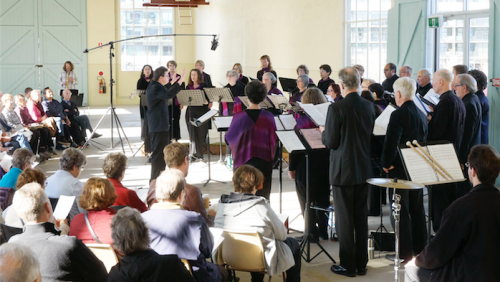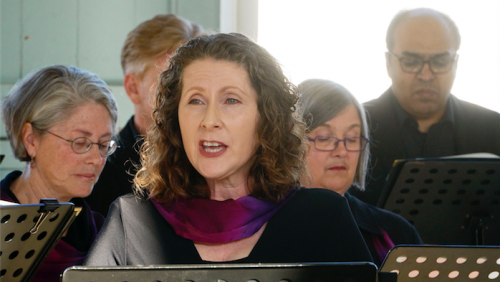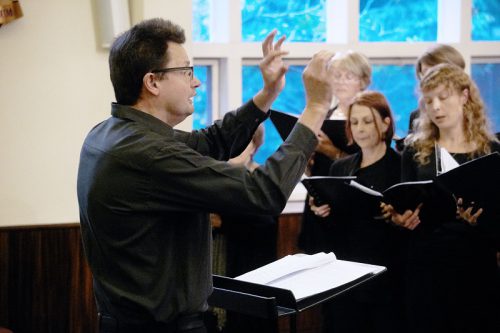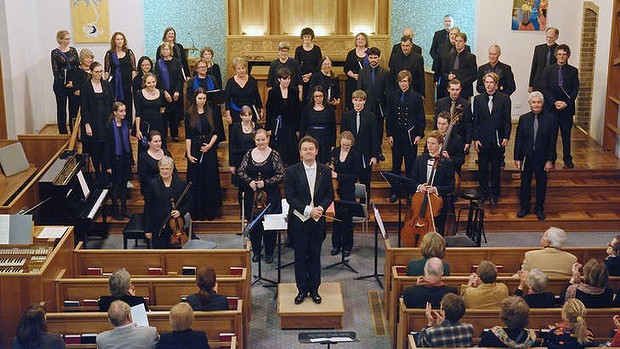Northern Lights
 Saturday, September 2, 2017 at 10:25PM
Saturday, September 2, 2017 at 10:25PM Review: Remarkable music in a remarkable space
Music: Northern Lights, The Oriana Chorale.
At the Fitters’ Workshop, Kingston, August 26.
Reviewed by GRAHAM McDONALD.
August 27, 2017
 Peter Young conducts Northern Lights at the Fitters' Workshop. Photo by Peter Hislop.
Peter Young conducts Northern Lights at the Fitters' Workshop. Photo by Peter Hislop.
EVERY now and again we get to hear something extraordinary, and this time it was the Oriana Chorale performing a program of (mostly) Russian and Baltic music in the remarkable acoustic space that is the old Fitters’ Workshop in Kingston. Most of the concert was Russian Orthodox liturgical music, the rest with some influence from it.
The choir spread themselves along the long eastern wall of the building, which allowed them more space than if crowded into one end of the room. It may also have enhanced the immersive soundscape of the concert as the music flowed over and around the audience. What could have been a mushy noise was clear and distinct, with each section of the choir and vocal line clearly discernable. Musical director and conductor Peter Young noted in his introduction that the works selected were chosen to suit the acoustic space and he succeeded notably.
 Soprano soloist Jo Johnstone. Photo by Peter Hislop.
Soprano soloist Jo Johnstone. Photo by Peter Hislop.
An interesting addition to the concert was a series of short soprano saxophone improvisations from John Mackey. These were played between some of the many short vocal works that made up the concert, and acted as punctuation in the flow of the concert, and as short breaks for the singers who otherwise sang for close to an hour and a half. These were a tasteful and thoughtful contribution to the concert.
The highlight was Arvo Part’s “The woman with the alabaster box”, which is a marvel of vast and unexpected chords along with extended drones from the sopranos and altos. This was a piece of music so glorious that one of the sopranos could not keep the grin off her face from the pleasure of being part of it.
Also enthralling were two works by Lithuanian composer Eriks Esenvalds. The first was a setting of a 13th century hymn text and the second by an early 20th century American poet, which jarred a little textually and stylistically with other works in the program, but a very pretty piece of music. Six varied pieces from Rachmaninov’s All-Night Vigil, Op.37 to finish up brought the concert back to its liturgical base, with one being revisited as an encore with added saxophone.
The Fitters’ Workshop certainly works as a venue for vocal music, at least that music that relies on a cathedral-like ambience. On a sunny winter afternoon it was comfortable, but the very structure that makes it such an acoustically useable space must also limit when it would be viable as a performance venue. A winter evening in there could only be imagined as character building. At the very least Peter Young and the Oriana Chorale have shown what is possible.



